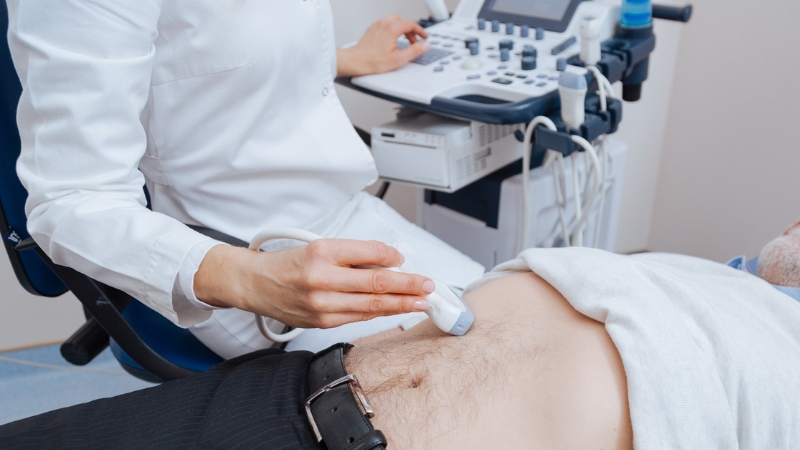Endoscopic Ultrasound (EUS)"Advanced Imaging for Precise Diagnosis and Treatment Planning."

We specialize in providing modern Endoscopic Ultrasound (EUS) services at our medical facility. This is a diagnostic and therapeutic method that allows for thorough imaging of the gastrointestinal tract and surrounding structures. Our services are tailored to ensure accuracy, patient comfort, and prompt diagnosis of health concerns, as we acknowledge the critical role that EUS plays in diagnosing and treating a wide range of medical conditions. This section will discuss the importance of endoscopic ultrasound (EUS), the conditions it can be used to diagnose, possible concerns, and the unique qualities that set us apart as a reliable source for top-notch gastroenterology diagnostic and interventional services.
What Is Endoscopic Ultrasound (EUS)?
A specialist medical procedure called endoscopic ultrasonography (EUS) combines ultrasound imaging with endoscopy. A flexible endoscope with an ultrasound transducer is used, enabling comprehensive imaging of the digestive tract and surrounding organs.
Why Is Endoscopic Ultrasound (EUS) Necessary?
- Tissue Imaging: An aid in the identification and characterisation of anomalies is the detailed images that EUS offers of the pancreas, the walls of the gastrointestinal tract, and the surrounding tissues.
- Biopsy and Fine Needle Aspiration (FNA): By enabling the FNA tissue sample collection, EUS makes it easier to diagnose tumors, cysts, and other abnormalities.
- Staging of Cancer: It is frequently used to stage malignancies, especially those that impact the stomach, esophagus, pancreas, and rectum, and it aids in assessing the disease's progression.
Possible Risks:
Even while EUS is widely regarded as safe, there are a few minor hazards involved, such as bleeding, infection, or a sedative reaction. These are uncommon dangers, and the process is carried out under close observation.
Procedure for Endoscopic Ultrasound (EUS):
- Preparation: Patients may be asked to fast for a specific amount of time prior to the procedure, depending on the location that will be checked.
- Insertion of Endoscope: Depending on the location being inspected, the endoscope is carefully placed through the mouth or rectum.
- Ultrasound Imaging: Sound waves are emitted by the ultrasound transducer at the endoscope's tip, creating finely detailed images of the digestive system and surrounding organs.
- Biopsy or FNA: In the event any anomalies are found, the gastroenterologist could take tissue samples for additional examination using a biopsy or FNA.
Our Endoscopic Ultrasound (EUS) services are dedicated to offering cutting-edge diagnostic tools for accurate assessments. Our talented gastroenterologists employ EUS to improve the precision of diagnoses and treatment planning, whether for diagnostic or therapeutic objectives. Our medical staff is available to answer any questions you may have regarding EUS or to provide more information.
Top Asked Questions and Answers:
FAQ (Frequently Asked Questions):
+91-9144411108
Emergency Cases

